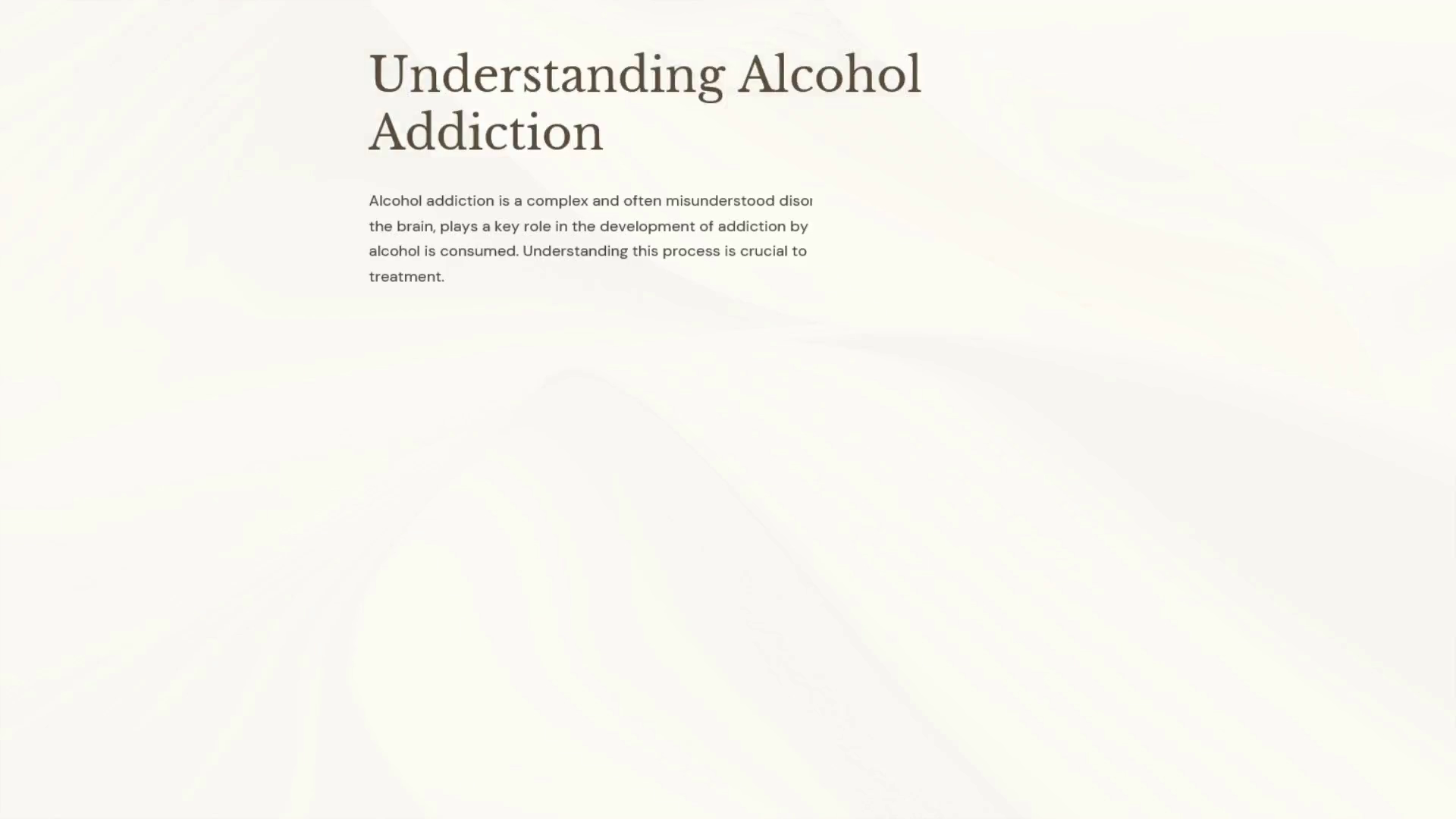
PptxGenJS Presentation
Scene 1 (0s)
Understanding Alcohol Addiction. Alcohol addiction is a complex and often misunderstood disorder. Dopamine, a neurotransmitter in the brain, plays a key role in the development of addiction by creating a pleasurable feeling when alcohol is consumed. Understanding this process is crucial to understanding addiction and its treatment..
Scene 2 (49s)
The role of Dopamine. YouTube Misunderstanding dopamine: Why the language of... Dopamine is the star of our conversations about motivation and addiction. But journalists, marketers, and app developers alike ha••• 10:45.
Scene 3 (1m 2s)
NATURE. Nature / Nurture. Alcoholism is caused by a combination of genetic and environmental factors. Research has shown that genes play a crucial role in the development of alcoholism. However, environmental factors such as stress, trauma, and peer pressure also significantly contribute to the onset of alcohol addiction. A person's upbringing, cultural background, and social environment can also influence their drinking habits and risk of addiction..
Scene 4 (1m 23s)
Qcovۧ*. AA's Paradigm: Alcohol Allergy. AA suggests that alcoholism is a disease and that people who are addicted to alcohol have an allergy to it. This allergy is a physical and mental reaction to alcohol that can lead to cravings, loss of control, and other symptoms of addiction..
Scene 5 (1m 53s)
Understanding the Negative Effects of Alcohol Misuse.
Scene 6 (2m 16s)
The Potentially Fatal Dangers of Alcohol Withdrawal.
Scene 7 (2m 43s)
Korsakoff's Syndrome. Korsakoff’s Syndrome is brain damage caused by a lack of thiamine. While this can also occur as a result of other conditions, the most common cause is alcohol abuse. KS produces symptoms similar to dementia including memory loss and confusion. It is sometimes referred to as alcoholic dementia or "wet brain"..
Scene 8 (3m 16s)
Types of Treatment: Which One is Right for You?. Treatment Type.
Scene 9 (3m 53s)
Signs and Symptoms of Alcohol Addiction. 1. Physical Symptoms.
Scene 10 (4m 17s)
How to Know if You Are Addicted to Alcohol. One key sign of addiction is the inability to cut down on drinking despite repeated attempts to do so. Other signs include continuing to drink despite negative consequences, experiencing withdrawal symptoms when not drinking, and prioritizing drinking over other important aspects of life. In addition to these, other signs of alcohol addiction can include:.
Scene 11 (5m 0s)
Overcoming Alcohol Addiction: A Personal Journey.
Scene 12 (5m 42s)
Breaking the Stigma of Addiction. 1. It's a Disease, Not a Choice.
Scene 13 (6m 18s)
Maslow's Hierarchy of Needs and Addiction. Self- ctualisatio chieving one's fu potential, including creative activities Esteem needs Self-fulfillment needs prestige, feeling of accomplishment Psychological needs Belongingness & love needs intimate relationships, friends Safety needs security, safety Basic needs Physiological needs food, water, warmth, rest.
Scene 14 (6m 43s)
Holistic Recovery. Holistic recovery is an approach to treating alcohol addiction that focuses on the whole person, rather than just the drinking. This means that treatment addresses all domains of a person's life, including physical, mental, emotional, and spiritual health. Holistic recovery programs often include a variety of therapies and activities, such as:.